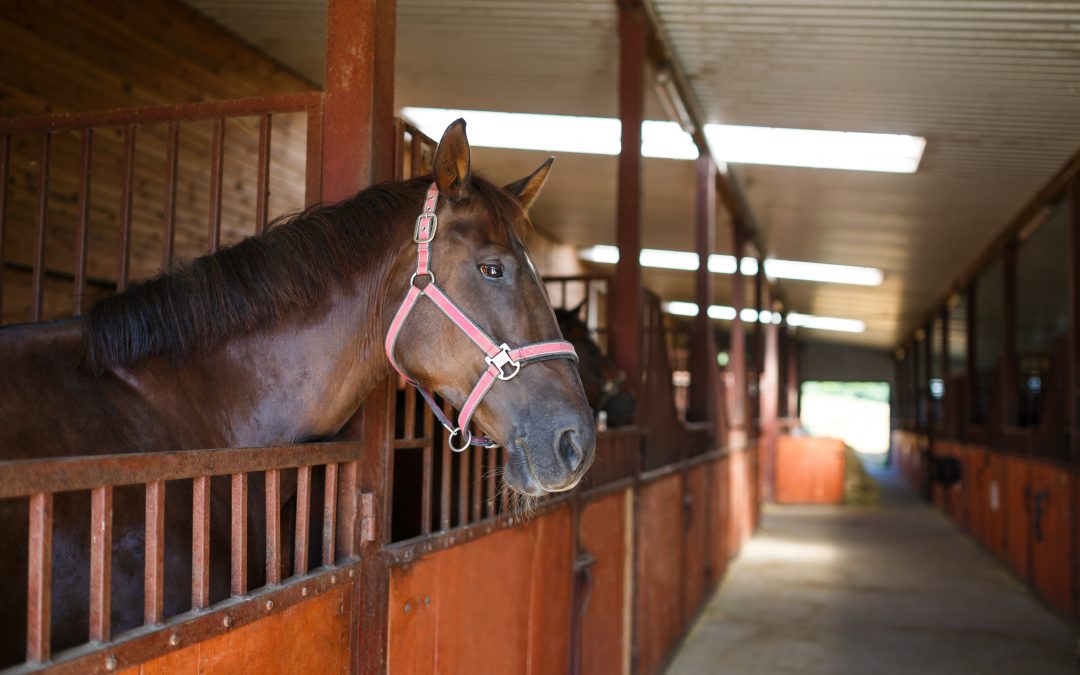The equine digestive tract is a fragile system and the rigors of training often cause disruption of normal function to occur. Gastrointestinal disorders, such as gastric ulcer syndrome, are common among the equine population and are often treated with a variety of pharmacological agents. While we can treat some gastrointestinal disorders with certain drugs, we must also instill good preventive care of the digestive tract so we can lower the incidence of such disorders and help the horse maintain healthy gut function.
Supporting the Digestive Tract
One of the best ways to support the equine digestive tract is to supply it with the actual organisms that reside there and a food supply for those organisms to utilize. Digestive support supplements generally provide prebiotics and probiotics (also called “direct fed microbials”) that help to stabilize and promote the health of the microbial populations that reside in the hindgut.
Prebiotics & Probiotics
The two categories of direct fed microbials differ in their function and use by the horse.
Prebiotics:
- Non-digestible (by the host) food ingredients that have a beneficial effect on their selective metabolism in the intestinal tract. Prebiotics have the ability to selectively promote the growth of healthy intestinal bacteria.
- Example of a Prebiotic – Fructo-oligosaccharides (FOS)
-
- FOS promotes the growth of beneficial bacteria such as Acidophilus and Bifidus. FOS provides a food source that only beneficial species of bacteria can utilize and are mainly derived from chicory or sugar beets when used as a supplement for horses.
Probiotics:
- Actual living microorganisms which, when administered in significant amounts, help the horse by re-establishing or maintaining their populations in the digestive tract.
- Examples of a Probiotic – Live Yeast Culture & Equine-Specific Bacteria
-
- Live Yeast Culture
A well-studied probiotic that helps prevent the colonization of pathogenic microorganisms in the gut, improve the percentages of useful microorganisms in the intestinal tract, boosts immune function, and strengthens the structure of the gut wall. Overall, live yeast in a horse’s daily diet can help improve digestion and absorption of nutrients by keeping the hindgut stable and correctly populated with healthy micro-organisms.
-
- Equine-Specific Bacteria – Lactobacillus reuteri and Saccharomyces boulardii
L. reuteri and S. boulardii are two types of bacteria that have been found extremely useful in supporting and maintaining equine digestive function and are two ingredients to look for in a probiotic supplement.
The bacterium L. reuteri is of equine origin, cultured from the colon of the horse, and has been shown to inhibit the growth of Salmonella.
S. boulardii is a yeast organism that has been shown effective in the prevention and treatment of enteric clostridial disease.
When to Use
Prebiotics and probiotics should be fed when the horse is subjected to:
- Stress
- Reduced digestive efficiency in geriatrics
- Shipping
- Competition
- Weaning
- Changes in diet
- Sickness
- Injury
- Surgery
- Infection
However, the greatest benefit of prebiotics and probiotics is obtained from their protective and preventative effects. They, therefore, they should be used on a continuous basis in order to constantly support and maintain healthy digestive function.
This blog post was originally posted on Monday, January 23rd, 2012 at Equine Nutrition and Health Services Blog. Blog article was re-posted with permission from blog owner, all rights reserved.
Related Products
Sign up for our FREE webinar – Health Gut, Healthy Horse.
Join Dr. Amy Gill, Equi-Force Equine Products founder, for a free educational webinar “Healthy Gut, Healthy Horse” on Tuesday, February 13, 2018, at 7.30pm EST. This webinar is FREE and can be attended via your phone or computer. However, you must register to attend. Reserve your spot at https://attendee.gotowebinar.com/regist…/5577659048822308865

